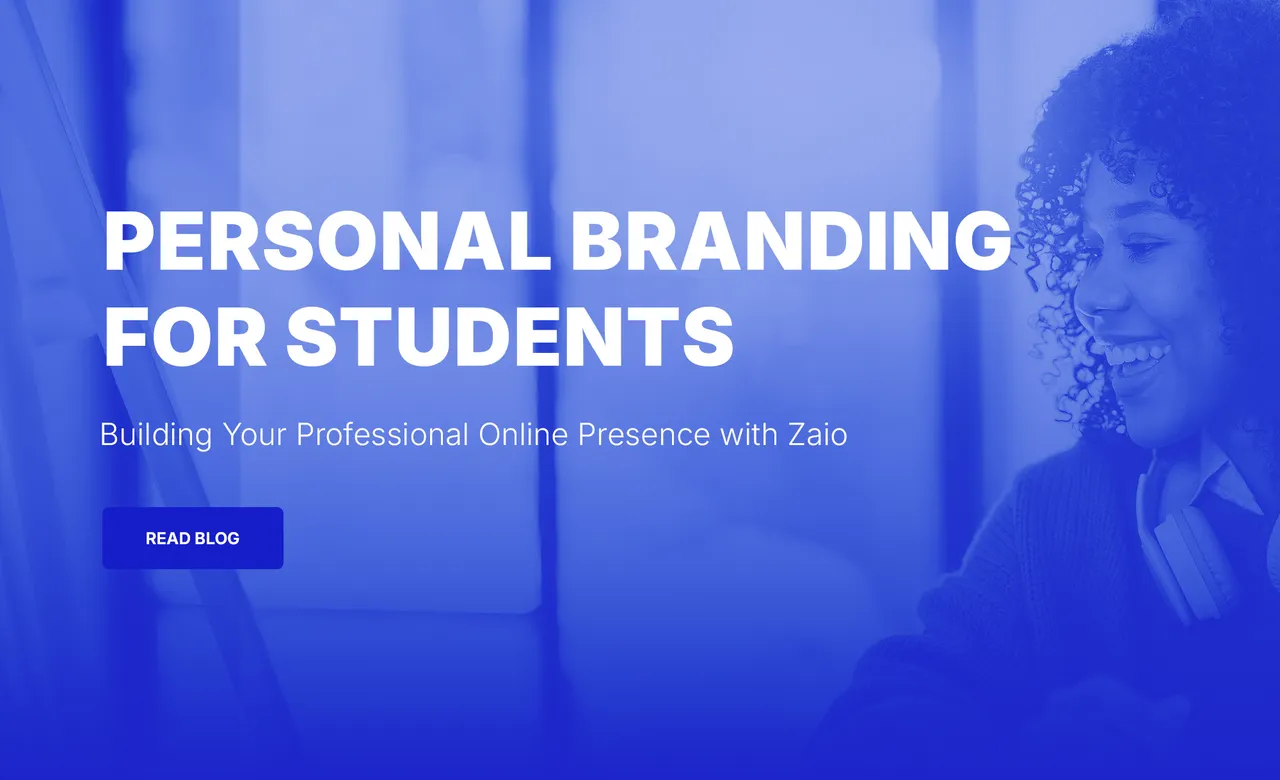Why Your Online Brand Matters as a Student
Personal branding is no longer just for celebrities or entrepreneurs. If you’re a student in South Africa, the way you present yourself online can make the difference between landing an internship or being overlooked. Recruiters, scholarship boards, and even lecturers are searching your name before they meet you.
Here’s the reality: South Africa’s youth unemployment rate sits at 45.5% (Stats SA, 2024). That means thousands of graduates are competing for the same opportunities. The students who stand out are those who know how to leverage their online presence to tell a story of credibility, skills, and career readiness.
At Zaio, we’ve seen firsthand how building a personal brand early can unlock scholarships, internships, and full-time roles—even before graduation. This article will walk you through exactly how to create a professional online presence that puts you ahead of the competition.
What Is Personal Branding for Students?
Personal branding is how you define who you are, what you stand for, and how others perceive you. Think of it as your career reputation, packaged into your:
- LinkedIn profile
- CV and cover letter
- Online portfolio or GitHub (for tech students)
- Social media presence
Just as companies use branding to attract customers, you can use personal branding to attract scholarship panels, recruiters, and mentors.
💡 According to LinkedIn, 70% of employers check candidates’ social media before making a decision.
Why Personal Branding Matters for Students in South Africa
Here’s why students in South Africa can’t afford to ignore their online reputation:
1. Visibility in a Competitive Job Market
A curated LinkedIn or online portfolio makes you discoverable to recruiters and collaborators.
2. Networking That Opens Doors
South Africa’s tech and finance industries are network-driven. A strong brand means mentors, alumni, and employers are more likely to connect with you.
3. Scholarships & Internships
Scholarship committees often research applicants online. A polished brand signals professionalism and commitment.
4. Career Readiness
Employers want candidates who show initiative. A professional online presence proves you’re serious about your goals.
5. Reputation Management
If you don’t control your story, someone else will. Branding gives you the power to shape perceptions.
How to Build Your Personal Brand as a Student
Step 1: Define Your Brand
Ask yourself:
- What skills and passions set me apart?
- Which industries or careers am I aiming for?
- What values do I want people to associate with me?
At Zaio, we recommend writing a personal brand statement—a one-liner you can use on LinkedIn, CVs, or networking events. Example:
“Computer Science student passionate about AI and cybersecurity, building innovative solutions to protect digital systems.”
Step 2: Audit Your Online Presence
Google your name. Do you like what you see?
Delete or hide:
- Old/unprofessional photos
- Posts that don’t reflect your values
- Incomplete or outdated bios
Replace with:
- A professional profile picture
- Consistent usernames
- Updated bios aligned with your career path
Step 3: Build on Key Platforms
LinkedIn – Your Career Launchpad
For South African students, LinkedIn is non-negotiable. Create a profile with:
- Professional headshot
- Headline: “IT Graduate | Future Data Scientist | NQF Level 7”
- About section with career goals
- Projects, certifications, and volunteer work
Portfolio or Personal Website
If you’re in tech, design, or writing, create a portfolio with your projects. Zaio bootcamp students often use GitHub + personal websites to showcase coding work.
Social Media (Optional but Strategic)
Twitter (X) and Facebook can be used to share articles, thought leadership, and projects. Just keep it professional and consistent.
Step 4: Showcase Your Skills
Make your experience skills-focused. Highlight:
- Internships or volunteer roles
- Certifications (e.g., Google Analytics, AWS, Zaio Bootcamp certificates)
- Academic projects
- Student leadership positions
👉 See Zaio Student Success Stories to learn how students showcased their skills to land jobs.
Step 5: Engage and Network
Don’t just set up your profiles—use them.
- Comment on industry posts
- Congratulate peers on achievements
- Share insights from your studies or bootcamps
The more you engage, the more visible you become in your community.
Bonus: South African Stats That Show Branding Matters
- LinkedIn penetration in South Africa grew to 10 million users in 2024.
- Employers in sectors like IT, data science, and finance increasingly use online screening.
- According to PNet, the average starting salary for IT graduates in South Africa is R20,000–R25,000/month—but those with strong portfolios and networks secure offers faster.
The Long-Term Impact of Your Personal Brand
Your online brand is more than a tool—it’s an investment. The students who master this early often:
- Get internships before graduation
- Build credibility as thought leaders in their fields
Transition smoothly into competitive industries like Cybersecurity, data science, web development, and AI engineering
At Zaio, we integrate career coaching, LinkedIn workshops, and portfolio development into our bootcamps because we know technical skills alone aren’t enough.
From Full Stack Web Development to AI Engineering, gain in-demand skills and build a portfolio to showcase online.












